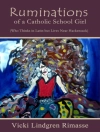In ‘Sundry Accounts, ‘ Irvin S. Cobb provides a rich tapestry of anecdotal narratives that capture the essence of American life in the early 20th century. Cobb’s writing exhibits a blend of humor and poignant observation, eloquently portraying the quirks and idiosyncrasies of his contemporaries. Comprising a compilation of essays and stories, this work reflects the literary context of regionalism, drawing upon Cobb’s Southern roots to evoke nostalgic imagery and social commentary. His unique voice reveals a mastery of colloquial expression, breathing life into familiar but often overlooked experiences of everyday people. Irvin S. Cobb, a native of Kentucky, was deeply influenced by the rich cultural landscape of the American South. His career as a journalist, humorist, and novelist provided him with a profound understanding of the human condition, allowing him to weave personal observations into captivating narratives. Cobb’s experiences during the tumultuous years of World War I and the subsequent social changes informed much of his writing, making ‘Sundry Accounts’ not only an entertaining read but also a valuable socio-historical document of its time. I highly recommend ‘Sundry Accounts’ to readers who appreciate vivid storytelling and clever wit, as well as those interested in the socio-cultural fabric of early 20th-century America. Cobb’s engaging prose and insightful reflections offer an enriching blend of humor and reality, making this work a timeless exploration of human nature.
Circa l’autore
Irvin Shrewsbury Cobb was an esteemed American author, humorist, and journalist, born on June 23, 1876, in Paducah, Kentucky. Cobb reached the peak of his literary career in the early 20th century, gaining recognition for his unique blend of Southern humor and vivid regional character depictions. His literary style, characterized by a rich vernacular and an eye for the idiosyncrasies of Southern life, resonated with readers across the United States. ‘Sundry Accounts, ‘ one of his noteworthy collections published in 1916, offers a blend of short stories and essays, revealing his talent for satire and keen observation of human nature. Cobb was a prolific writer, having authored more than 60 books and hundreds of short stories and articles. His works, such as ‘Old Judge Priest’ (1915) and ‘Back Home’ (1912), have left an indelible mark on American literature by capturing the essence of the South during a transformative period. Beyond the realm of writing, Cobb also ventured into film, appearing as an actor in several movies, thus expanding his influence beyond the printed page. Despite the decline of his fame posthumously, Cobb’s work continues to be studied for its historical and cultural significance to the American South. He passed away on March 11, 1944, leaving behind a legacy as a prominent voice in Southern literature and American journalism.












